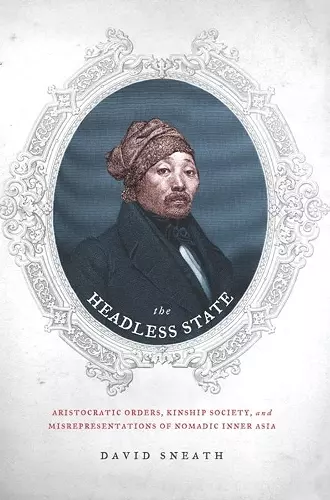The Headless State
Aristocratic Orders, Kinship Society, and Misrepresentations of Nomadic Inner Asia
Format:Hardback
Publisher:Columbia University Press
Published:8th Jan '08
Currently unavailable, and unfortunately no date known when it will be back

David Sneath's The Headless State challenges conventional views of Inner Asian nomads, proposing a more nuanced understanding of state formation and social organization.
In The Headless State, David Sneath challenges long-held beliefs about steppe societies and their historical representation. He argues that traditional views, which often depict Inner Asian nomads as fierce tribal warriors, are rooted in outdated colonial narratives and social theories that prioritize kinship as the organizing principle of these societies. Through extensive anthropological fieldwork, Sneath dismantles the legitimacy of the tribal model, revealing that the reality of life on the steppe was far more complex and nuanced than previously thought.
Sneath introduces the concept of a 'headless state,' where power dynamics were shaped by horizontal relationships among local leaders rather than a singular, centralized authority. This perspective shifts the understanding of political organization in the region, suggesting that state-like processes were present even in the absence of a traditional ruling figure. By redefining the dichotomy between state and nonstate societies, he illustrates that aristocratic power played a crucial role in determining the structure and function of governance on the steppe.
Ultimately, The Headless State presents a provocative reevaluation of Inner Asian history, emphasizing the importance of local power dynamics and the existence of social stratification. Sneath's work not only contributes to a deeper understanding of state formation but also invites scholars to reconsider the analytical frameworks used in the study of societies that defy conventional categorizations. His insights are essential for anthropologists and political theorists alike, offering a fresh lens through which to view the complexities of Inner Asian polities.
A study rich in both historical fact and linguistic analysis... Highly recommended. Choice The author presents intelligent, clearly writtenarguments, disagreement with which should callfor serious reflection. -- Daniel Prior Journal of the Royal Anthropological institute
ISBN: 9780231140546
Dimensions: unknown
Weight: unknown
288 pages